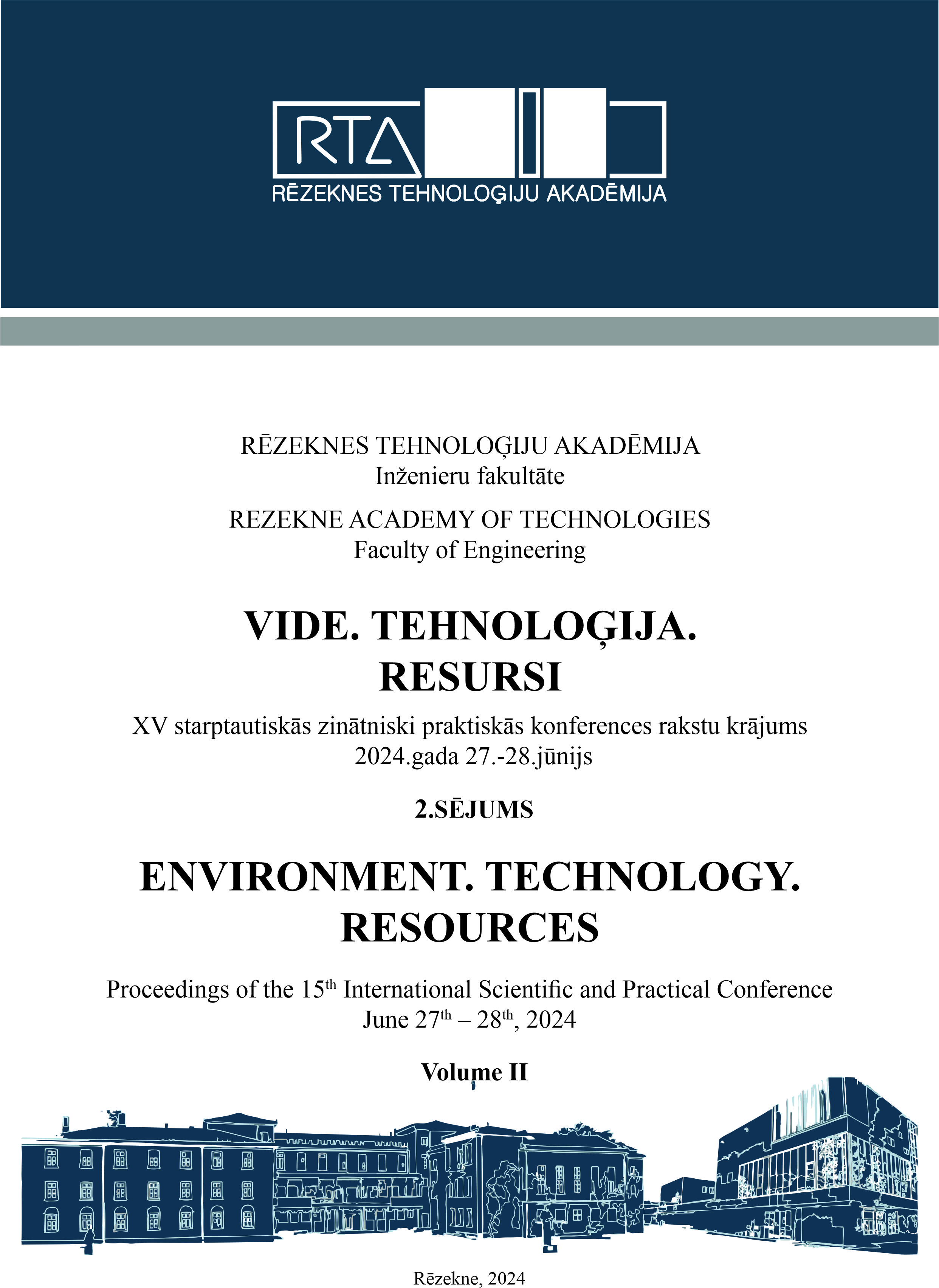INFORMATION AND LIBRARY EDUCATION IN THE CONTEXT OF DIGITALIZATION OF SOCIETY: PROMISING TRENDS AND REQUIREMENTS
DOI:
https://doi.org/10.17770/etr2024vol2.8079Keywords:
Digitalization of LIS education, competencies of librarian, information and library educationAbstract
This article analyzes world trends and foreign experience in creating a new paradigm in the development of information and library education in the digital era. The necessity of using innovative technologies in bachelor's degree in teaching information and library disciplines, the purpose, teaching methods and results of research are discussed. What, in turn, needs to be done and what will help to train highly qualified specialists for information and library specialists of the republic.
References
Europe and North America’. New Library World, vol. 108, no. 1/2, Emerald, Jan. 2007, pp. 7–24, https://doi.org10.1108/03074800710722144. Retrieved September 21, 2011 from http://mg.csufresno.edu/papers/forum_2/abdullahi_Virkys.pdf
S.R. Arakelov, Information and library science: innovative methods of teaching courses in the bachelor", Proceedings of the 8th International Conference" Сentral Asia - 2014". - Karshi, 23-25 April.
S.R. Arakelov, “Information and Library science: the processes of informatization learning in undergraduate”, The Third International Conference on Eurasian scientific development. Proceedings of the Conference. Vienna. ISBN – 13 978-3-902986-31-3, 2014, pp. 78-80.
B.I. Ganieva and S.R. Arakelov, Innovative approaches in reshaping activities of the Department 'Information and Library Systems', 2019 International Conference on Information Science and Communications Technologies (ICISCT), IEEE, 2019, https://doi.org10.1109/icisct47635.2019.9011922.
M. Rahmatullaev, B. Ganieva, and A. Khabibullaev, Library and Information Science Education in Uzbekistan, Slavic & East European Information Resources, https://doi.org10.1080/15228886.2017.1322381.
B. T. Sullivan, Academic Library Autopsy Report, 2050. The chronicle of higher education. 2011. https://www. chronicle. com/article/Academic-Library-Autopsy/125767 (accessed 19.08.2018).
M. A. Rakhmatullaev and A. Khabibullaev, Libraries in Uzbekistan: Past, Present, and Future. Libraries in the early 21 st Century: An International Perspective, edited by R. N. Sharma, (Vol. 1, pp. 375–386), 2011, Berlin, Germany: De Gruyter Saur.
T. J. Wiebe, "The library and undergraduate research in the liberal arts: present contributions and future opportunities." College and Undergraduate Libraries, 2016, 23 (3), 223-251
L. Li, The future of academic libraries in the digital age. Trends, discovery, and people in the digital age. Amsterdam [etc.], 2013, 253-268.
F. Salisbury and J. Peasley, "Measuring the academic library: translating today's inputs and outputs into future impact and value." Information and Learning Science, 2018, 119 (1/2), 109-120.
C. Varela-Prado and T. Baiget, "The future of academic libraries: uncertainties, opportunities and challenges." Investigacion Bibliotecologica, 2012, 26 (56), 115-135.
C. Smith, "Presence, Permeability and Playfulness: future library architecture in the digital era." Digital information strategies: from applications and content to libraries and people, Elsevier, 2016, pp. 229–244, https://doi.org10.1016/b978-0-08-100251-3.00016-0.
L. Pedersen, "The future of public libraries: a technology perspective." Public Library Quarterly, 2016, 35 (4), 362-365.
Glide on the waves or get into the whirlpool? Navigation in an evolving information environment: a review of the IFLA development trends report. // Rossiiskaya bibliotechnaya assotsiatsiya. http://www.rba.ru/cms_rba/news/upload-files/ news/ 2014/10_04/ifla.pdf (accessed 19.08.2022). (In Russ.).
IFLA trend report update. Hague, 2017. 15 p. https://trends.ifla.org/files/trends/assets/documents/ifla_ trend_report_2017.pdf (accessed 19.08.2022).
N. Upadhyay, "Trends that will affect technology and resource decision in academic libraries in near future." 4th International symposium on emerging trends and technologies in libraries and information services: ETTLIS proc. Noida, 2015, art. 7048175, 75-79.
K. Rosa and T. Storey, "American libraries in 2016: creating their future by connecting, collaborating and building community." IFLA Journal, 2016, 42 (2), 85-101.
M. Tripathi, A. Shukla, and S.K.Sonker, Research data management practices in university libraries: a study. DESIDOC: Journal of Library and Information Technology, 2017, 37 (6), 417-424. https://doi.org10.14429/djlit.37.6.11336.
L. McKenna, C. Debruyne, and D. O'Sullivan, Understanding the position of information professionals with regards to linked data: a survey of libraries, archives and museums. Proceedings of the ACM/IEEE Joint Conference on Digital Libraries. New York, 2018, 7-16. https://doi.org10.1145/3197026.3197041.
M.Wojcik, Internet of things - potential for libraries. Library Hi Tech, 2016, 34 (2), 404-420. https://doi.org10.1108/lht-10-2015-0100.
Varnum K. J. (ed.). The top technologies every librarian needs to know: a LITA guide Chicago, ALA TechSource, 2014. 131 p.
Fuchs R. Choosing the right scanners for you. Public Library Quarterly, 2015, 34 (3), 256-269. https://doi.org10.1080/01616846.2015.1069682.
Downloads
Published
Issue
Section
License
Copyright (c) 2024 Sergey Arakelov, Barno Ganieva

This work is licensed under a Creative Commons Attribution 4.0 International License.



